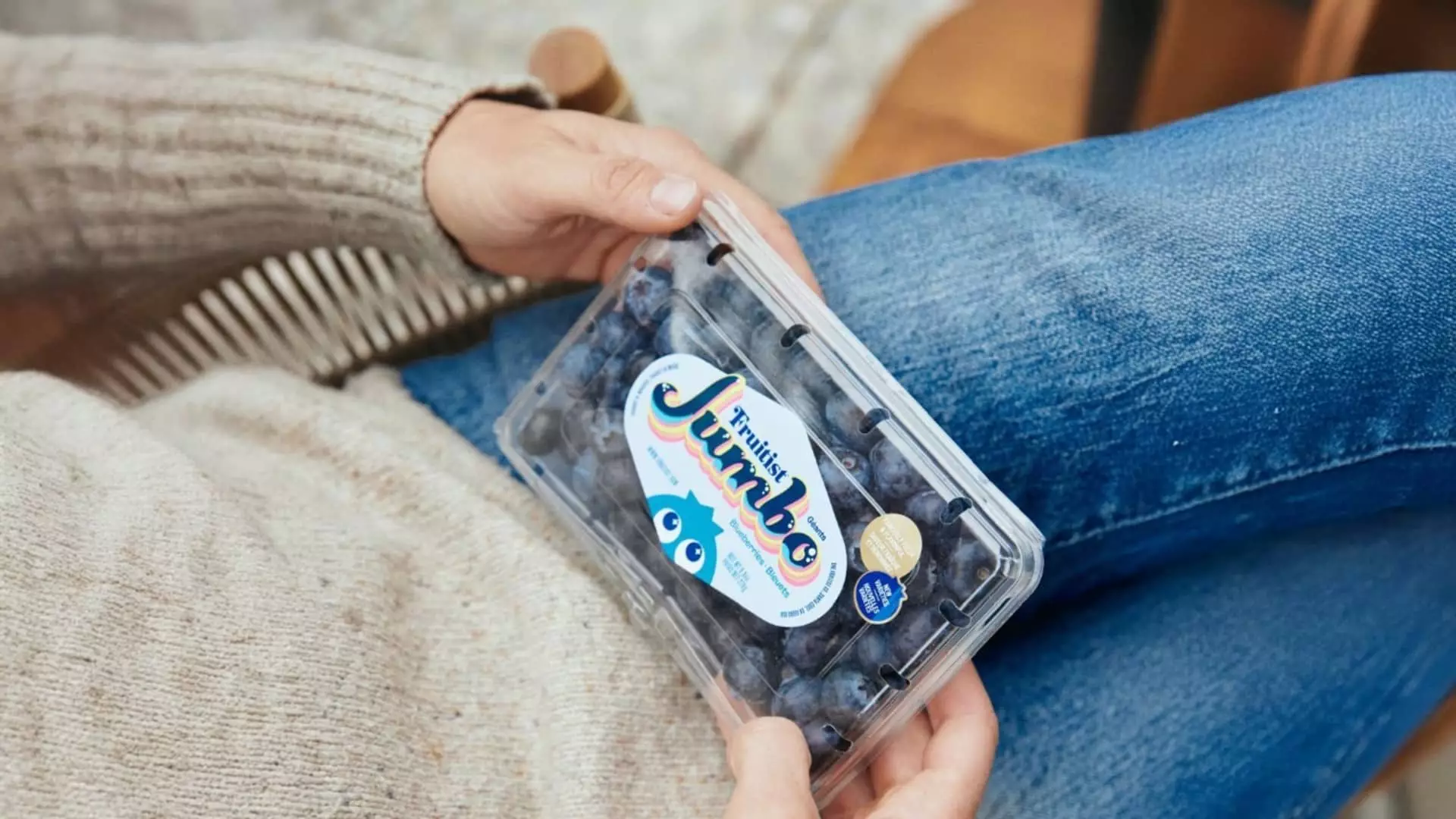In a world where the giants of the food industry often overshadow smaller players, Fruitist has emerged as an unparalleled disruptor, raking in over $400 million in annual sales. Founded in 2012 and originally known as Agrovision, the company has recently rebranded itself, signaling a fresh identity aimed at revolutionizing the berry market. With its extraordinary jumbo blueberries and a formidable lineup of raspberries and blackberries, Fruitist’s ascension highlights a broader shift in consumer preferences towards healthier snacking options.
These past few years have witnessed a groundbreaking evolution within snack food, as health-conscious consumers lean away from traditional fare like potato chips. Instead, they gravitate towards snacks that promise not just convenience but genuine nutritional benefits. Fruitist has tapped into this lucrative market by not only presenting its berries as “snackable” but also addressing pressing concerns around quality and sustainability.
Innovating Through Vertical Integration
Co-founder and CEO Steve Magami has strategically revolutionized the traditional berry supply chain, which is often marked by unpredictability and inconsistency. Describing the legacy produce model as “berry roulette,” he points out the inefficiencies and variability that come with many middlemen involved in the process. By cultivating fruit in microclimates and operating its own farms across Oregon, Morocco, Egypt, and Mexico, Fruitist is ensuring that quality does not suffer as the company scales.
The benefit of operating under a vertically integrated supply chain cannot be overstated, especially in an era defined by sustainability movements and consumer consciousness about food sourcing. The investment in critical infrastructure, including on-site cold storage, is designed to keep the berries fresh for extended periods. Magami’s proud assertion that his company’s berries remain edible for weeks in a refrigerator stands as a testament to their commitment to quality.
Funding a Fruity Future
The financial trajectory of Fruitist speaks volumes about its potential. With over $600 million raised in venture capital, including backing from high-profile investors such as Ray Dalio’s family office, the company has positioned itself for ambitious growth. While the idea of going public looms on the horizon, questions arise about whether it is wise to venture into the uncertain public markets, especially given recent mixed outcomes for IPOs.
Despite this uncertainty, the appetite for consumer brands with robust growth rates remains strong, suggesting that Fruitist has a fighting chance. The company’s hesitance to spend heavily on marketing emphasizes its confidence in the quality of its product; word-of-mouth and visibility in major retailers like Costco and Whole Foods may serve as adequate advertising for now.
However, as seen in the broader financial landscape, market volatility, particularly influenced by geopolitical factors such as trade wars, presents unique challenges. Though Magami downplays potential tariffs and the associated risks, one can’t overlook the need for a smart, adaptable strategy when sailing through these turbulent economic waters. After all, the berry business is as much about the product as it is about navigating the complexities of global trade.
The Move to Broaden Horizons
Looking ahead, Fruitist aims to diversify its offerings further by entering the cherry market. Currently testing the waters on Chilean farms, they project their cherries could be gracing supermarket shelves by early 2026. This move reflects a growing trend among food startups to expand their product lines in response to demand while capitalizing on seasonal nuances to offer consumers fresh, year-round options.
Such diversification not only provides resilience against market fluctuations but also aligns perfectly with a broader health and wellness trend. The potential for cherry-infused health benefits complements the brand’s overarching dynamic of promoting healthier snack alternatives, reinforcing its identity in a competitive landscape.
The success of Fruitist in the increasingly health-conscious market presents an exciting yet complex narrative for startups in the food industry. Although they align themselves with trends pushing towards organic, healthy living, the challenges of going public amidst fragile economic conditions require careful consideration.
Navigating the intricacies of quality control, market unpredictability, and consumer tastes will ultimately determine Fruitist’s trajectory. In a swiftly evolving food landscape, the company’s journey offers critical insights for the future of health-oriented food brands looking to thrive in an industry rife with competition. With their innovative models and compelling offerings, they are positioned not only to disrupt the market but to redefine it.

